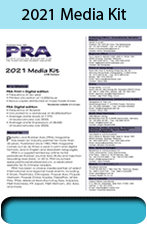Krones/Alpla work on returnable PET bottle
In the beverage packaging market, returnable PET containers currently play a rather small role. Now, German beverage and food industry equipment supplier Krones and packaging firm Alpla are working to develop a returnable PET container that will provide an optimal environment for sensitive ESL (Extended Shelf Life) products such as juices and milk in the cold chain.
The partners’ dedicated particular attention to the container cleaning process because “PET is less heat-resistant than glass,” explains developer Ines Bradshaw. “So we had to find a way to ensure both a high level of microbiological safety and a high number of use cycles while cleaning at lower temperatures.”
To obtain an objective and meaningful base of data, Krones’ development plant for washing technology in Flensburg carried out an elaborate series of tests, analysing the interaction of different bottle designs and cleaning processes. “The tests provided us with a very clear picture of the respective thermal, chemical, and mechanical factors,” says Bradshaw. “Among the findings: With the right combination of parameters – especially lye concentration, temperature, additive, and mechanical impact – temperatures around 60°C are sufficient to reliably remove even dried protein, fat, and starch contamination from the containers.”
A direct comparison of returnable PET and returnable glass brought to light another interesting discovery that over various cleaning cycles, the alkaline cleaning medium visibly roughened the surface of the glass bottle, whereas nothing comparable could be observed with the PET containers.
“For the filling of sensitive beverages in particular, consistent container quality can be an advantage that should not be underestimated,” notes Bradshaw.

Microbiological tests are currently being conducted to definitively establish whether the technology is safe.
Initial results confirm the observations made thus far: “Microbiologically, PET bottles that had gone through 25 cycles could not be distinguished from new ones,” says a very pleased Bradshaw. With this proof of concept, the project has reached an important milestone and is now ready for the next major step, with preparations underway for the technical field test.
(IMA)Subscribe to Get the Latest Updates from IMA Please click here
©2021 Injection Moulding Asia. All rights reserved.













